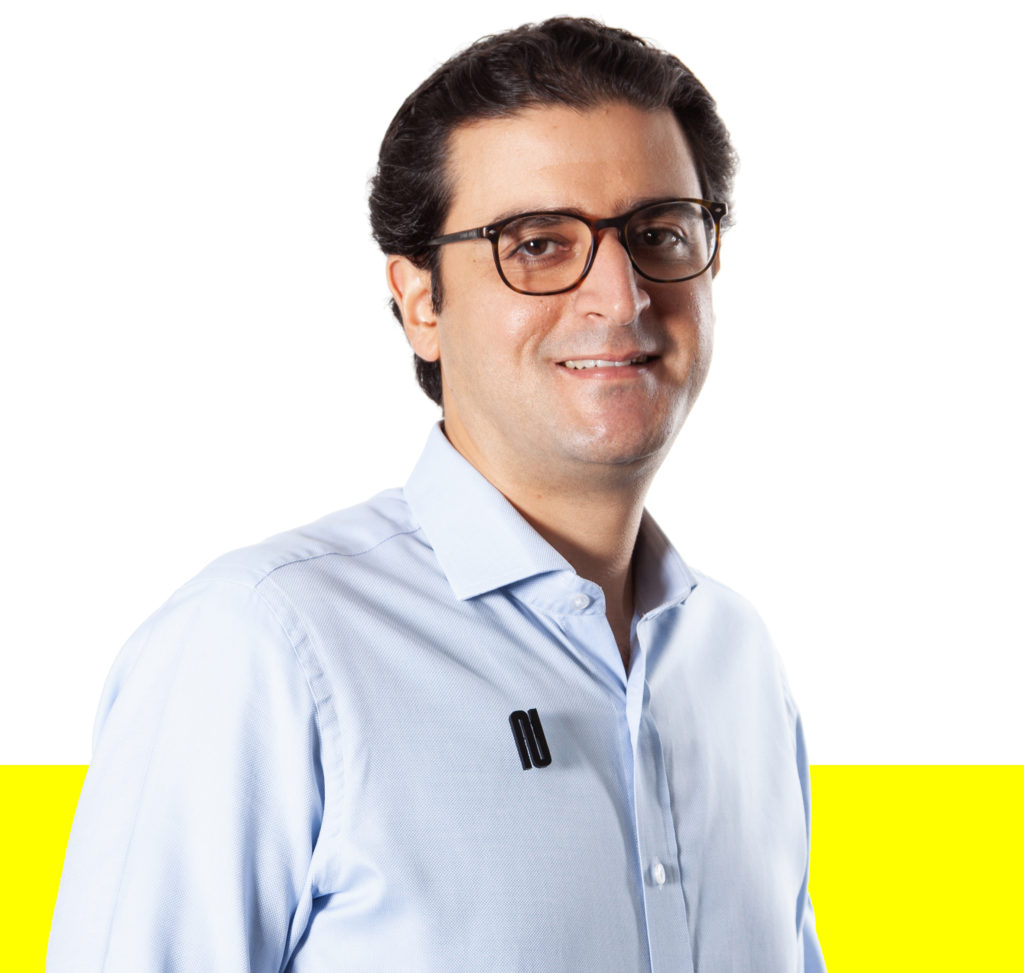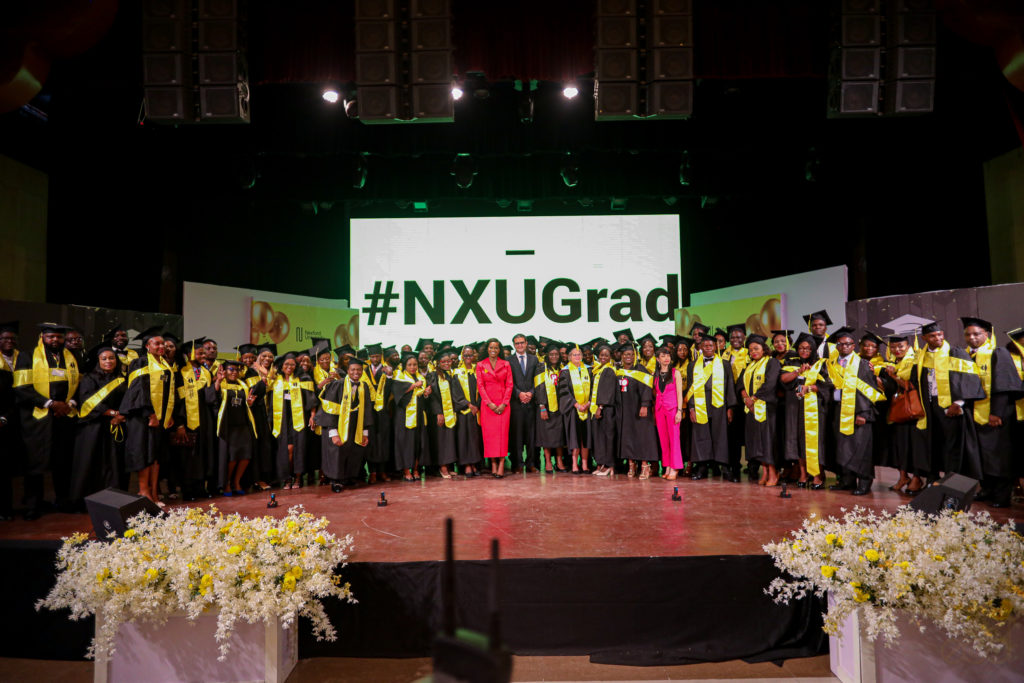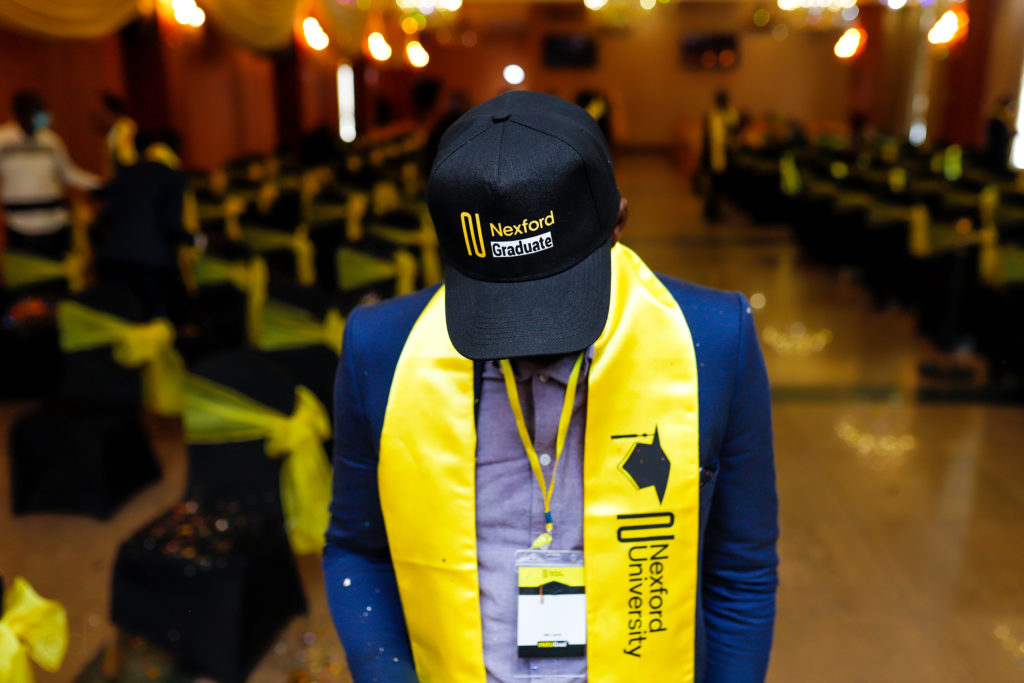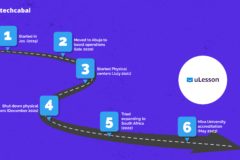
Over the weekend, Nexford University held its second graduation ceremony in Nigeria. Four hundred students were seated in their graduation gowns, eager to accept their BBAs and MBAs from the online university. Nexford University is a US-licensed online university that allows its “learners”—as they are called—to study at their own pace.
At Nexford, students from all over the world are taught courses like building a tech startup, artificial intelligence, and e-commerce at the undergraduate level, and courses like hyperconnectivity and business administration at the postgraduate level. The university prides itself on delivering education that is relevant to today’s world. According to the CEO and founder, Fadl Al Tarzi, there are plans to add courses like software engineering, digital marketing, and project management depending on demand.
“We believe that there’s a gap that exists between affordable education and quality education […] that’s why we started Nexford University,” Al Tarzi said over a chat at the Oriental Hotel in Lagos. He explained that he founded Nexford to address this gap and the demand from society and employers for a degree. He also told TechCabal that the university uses only digital and social media to build a reputation online. Through “word of mouth”, Nexford now has learners from over 80 countries.
Founded in 2018, Nexford is licenced in Washington DC as a university, and Al Tarzi said the university is trying to get nationwide accreditation in the United States ( Nexford cannot offer programmes in 22 American states). Al Tarzi explained that the process of acquiring national accreditation was stringent and not startup-friendly. “The process of licencing and accreditation is very stringent and takes four years, involving applying to certain bodies that are approved by the Department of Education.” Al Tarzi said it’s like this because the approval body has to make sure that Nexford is sustainable and academically sound.
Nexford calls its learning model “authentic assessment”. Students at Nexford do not write examinations or tests but rather only submit assignments and projects. Al Tarzi said this is because Nexford wants to prepare its students for the world of employment. “If you’re doing a finance course, you have to build a financial model. We’re not going to ask you to write a paper about the financial model, because our assessments are all designed to mirror what an employer would ask you to do.”
Last week, Nexford announced that it had raised an $8 million Series A, following its $10.8 million pre-Series A last year. Al Tarzi said that the funding is being used to develop the technology that Nexford uses. The university built a proprietary natural language processing model to analyse job vacancies across the world, and Al Tarzi said this guides Nexford’s curriculum. The university also has the Nexford Operating System that it uses to automate administrative tasks, which lowers the cost of running.
A bachelor’s degree from Nexford costs $90 per month and an MBA costs $180, with an average cost between $3000 and $4000, while the average cost of tuition in the United States is $19,020. “We would rather educate 100,000 people at $2,000 than 50,000 at $4,000 per student,” Al Tarzi said. Nexford was established as a public benefit corporation and wants to reach the largest number of people in order to deliver the biggest impact possible.
According to Al Tarzi, the university has enrolled close to 4,000 students since its inception. To measure the impact it has had on these students, Nexford organised a survey for its alumni to ensure that they were either on track to achieve a 3x to 5x return on their education investments or had already achieved it. Al Tarzi said that over 90% of the university’s alumni answered in the affirmative.
One such alumnus, Anuoluwapo Ademuyiwa, told TechCabal that he was able to earn 4 times his annual salary only 8 months after his graduation.

Can Nexford represent a viable option for Nigerians?
It is not far from the truth to say that Nigeria’s education system needs fixing. Since February 14, students from all over the country have been stuck at home because of the nationwide university strike, the 16th since Nigeria’s return to democracy in 1999.
Beyond tertiary education, Nigeria also has the highest number of out-of-school children in the world – 11 million. Last year, the Minister of Education, Malam Adamu Adamu, said that more than 76 million adults, representing 38% of the estimated 200 million population of Nigeria, are illiterate.
Nexford appears to represent a viable option for young—and older—Nigerians to prepare for today’s world of employment. Precious Aleaji, a graduate, told TechCabal that the first he heard of OKRs (objectives and key results), a term used often in business parlance, was at Nexford. He also said that Nexford’s competence-based approach to schooling, which differs from the traditional time-based approach, allowed him to bring out his best.
Aleaji told TechCabal that although he never physically met a lot of his fellow students or faculty members, he was able to create a relationship with them through Canvas, a learning management system.
Kenneth Nwafor, a full-time employee at Guaranty Trust Bank and a Nexford MBA graduate, told TechCabal that despite being a totally digital experience, the degree allowed him to connect with his lecturers without compromising on his work schedule. With his job, he rarely had time but could schedule one-on-one meetings with his lecturers whenever he had the time.
Although Nexford’s degrees are cheap when compared to international rates, the tuition combined with the cost of a laptop and internet connection might remain out of reach for most Nigerians—40% of Nigerians live below the national poverty line. Al Tarzi told TechCabal that to remedy this, Nexford has partnered with different Nigerian companies like Piggyvest and Sterling Bank to provide scholarships, internet centres, and financial support.

How does Nexford handle malpractice?
Educational institutions struggle with curbing malpractice in remotely-conducted assessments as it is difficult to enforce independent work virtually. For example, last year, the University of Lagos conducted its first-ever remote-based entrance examination due to restraints caused by COVID-19. The university recorded multiple cases of exam fraud in the aftermath of the exam, despite the students being monitored by exam officials.
To counter plagiarism, Nexford has anti-plagiarism software and very stringent policies on misrepresenting other people’s work without citing the original author. Nexford’s Nigeria Country Manager, Olamidun Ogundoyin, told Techcabal that to verify whether its students are indeed taking the courses themselves, Nexford supervises them.
“The university requires the completion of proctored assignments at the beginning, middle, and end of each degree program offered. The purpose of the proctored assessment is to verify that the person who is taking the assessment is the same person who enrolled in the program. If a learner does not meet the requirements of the proctored assessment protocol, they will fail the course,” she told TechCabal via email.
When asked how Nexford verifies that its students are the ones doing the work themselves, a current student at Nexford told TechCabal that “I have no idea. I just know they’re very serious about plagiarism. I guess they expect us to be honest and do things ourselves”.
At this year’s graduation ceremony, one of Nexford’s “learners” graduated with a BBA and an MBA within 18 months, an unprecedented feat on Nigerian shores. In today’s world powered by innovation and speed, solutions like Nexford offer promise.
On Friday, the 23rd of September, TechCabal in partnership with Moniepoint (by TeamApt) will host the most important players in tech and business on and off the continent to discuss the future of commerce in Africa. Register now to attend




















